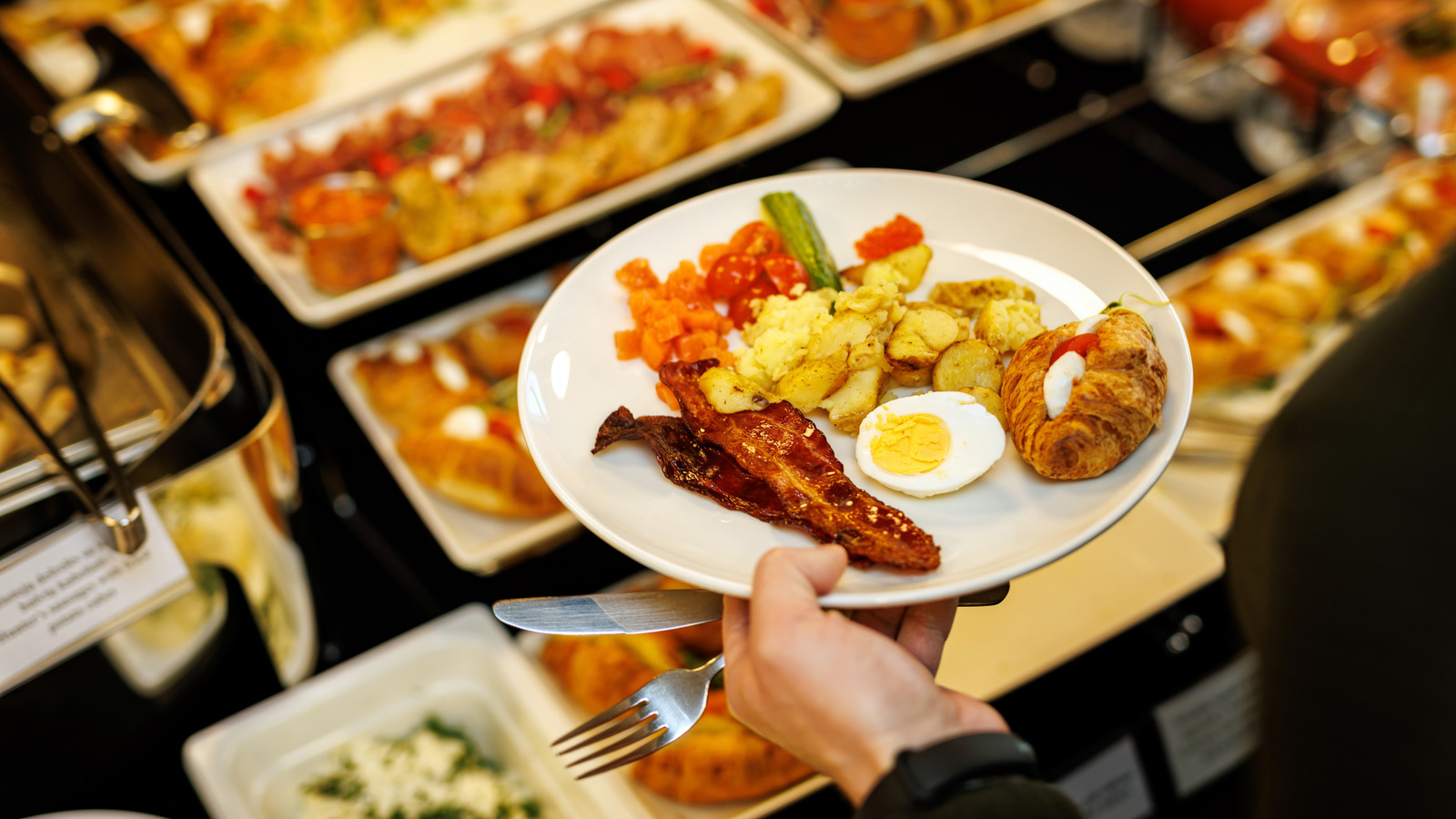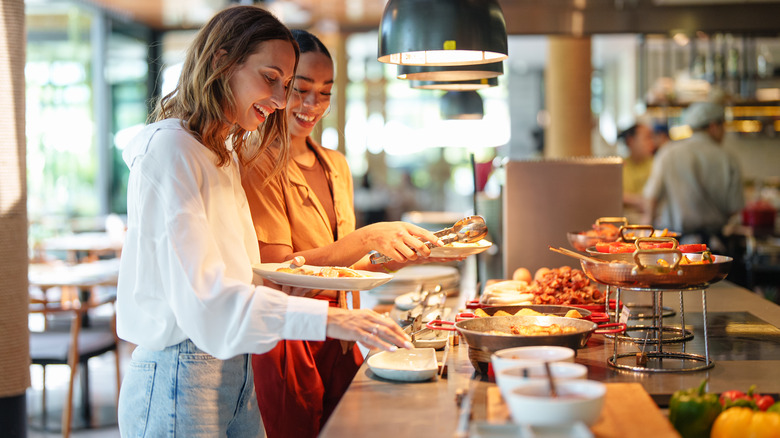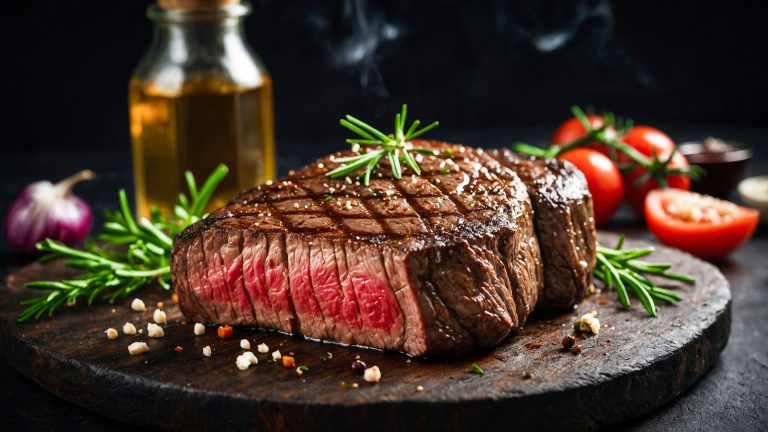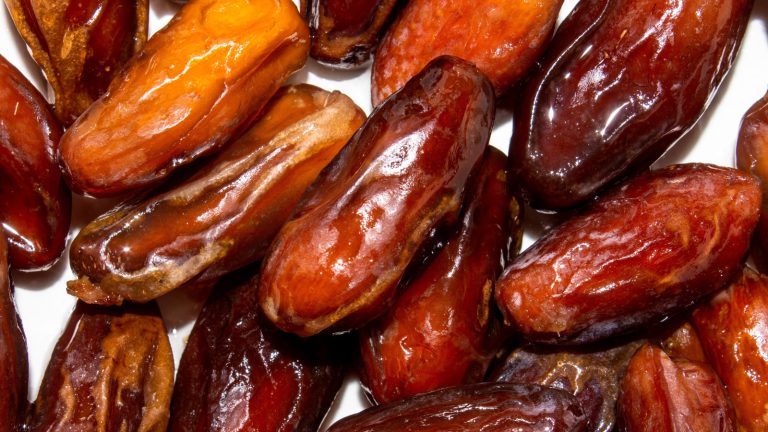If you’re excited to put on your comfy slippers and head down to the hotel breakfast buffet, you might be wondering if there are any foods you should avoid when making your plate. Food Republic spoke to Campbell Mitchell, food safety professional and founder of QuEST 4 Food, and learned that certain dishes at a breakfast buffet carry a higher risk than others — especially those made with eggs.
“Egg-based dishes like Hollandaise sauce, scrambled eggs, and quiches can be problematic if not held at appropriate temperatures,” Mitchell said. To be considered safe, eggs must be cooked to reach an internal temperature of 165 degrees Fahrenheit and then maintained at a temperature of at least 140 degrees Fahrenheit when left out for serving. “These items are susceptible to rapid bacterial growth, particularly if they contain undercooked or raw eggs, which can harbor Salmonella,” Mitchell said.
However, there are some instances where egg-based sauces are safe to consume. “Surprisingly though, commercial [mayonnaise] is perfectly safe at ambient temperatures, due to the acids used in its manufacture, and its pH,” Mitchell said. If a dish has a lower risk of containing raw eggs, like quiche or frittatas, it should still follow safety protocols. According to the FDA, perishable foods should be thrown away if left out for more than two hours at room temperature, or one hour if it’s over 90 degrees Fahrenheit.
More red flags to be aware of at a buffet
One of the primary buffet red flags to look out for is improper temperature control (this applies to both hot and cold dishes). Hot dish protocol is crucial, but it’s just as important to understand cold food safety. For these items (like cocktail shrimp or fresh fruit), they should be kept refrigerated until serving, and then placed on ice — especially if they’re going to be out for more than two hours.
Additionally, you should avoid buffets that refill dishes by dumping new food directly on top of older batches. “This can lead to cross-contamination and uneven temperature distribution,” Campbell Mitchell said. Instead, you should only trust establishments where workers replace nearly empty serving dishes with freshly filled ones. Seeing someone top off items like roasted potatoes, scrambled eggs, and bacon at a buffet is a sign that you’d be better off selecting a different dish.
To have the best chance of a delicious and safe meal, the time you go matters. “Visiting during peak hours, typically shortly after the buffet opens, ensures that food items are freshly prepared and have not been sitting out for extended periods,” Mitchell said. “Freshly prepared dishes are more likely to be at safe temperatures and less likely to have been exposed to potential contaminants.” Conversely, you should avoid buffets during off-peak hours — especially as closing time approaches — as the food has likely been sitting out for an extended period by that point.






